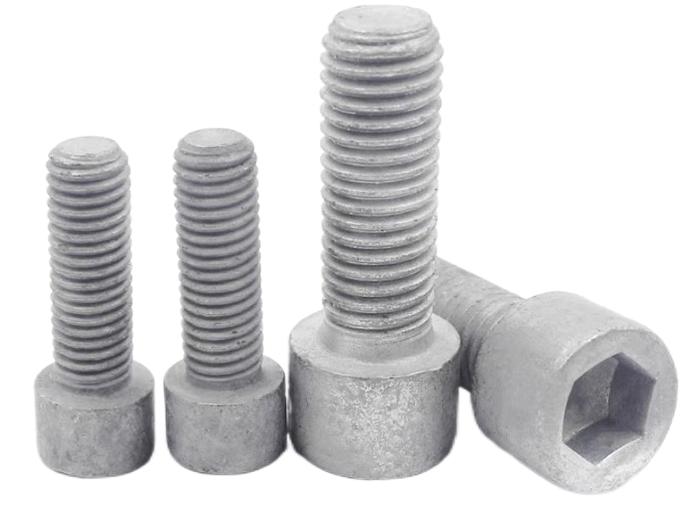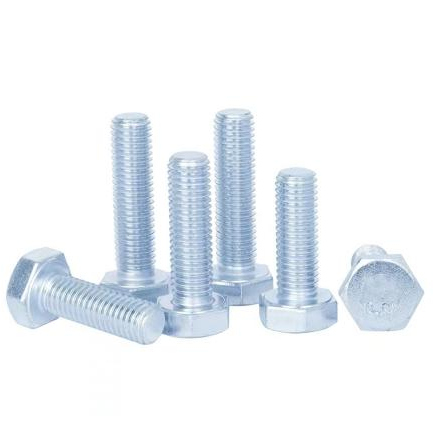Galvanized bolts are widely used for their rust and corrosion-resistant properties, achieved through zinc coating. However, despite this protection, galvanized bolts can still rust under certain conditions. This article delves into the factors contributing to the rusting of galvanized bolts and provides solutions to mitigate these issues.

What are Galvanized Bolts?
Galvanized bolts are steel bolts coated with zinc to form a protective layer against rust and corrosion. The zinc coating acts as a sacrificial barrier, corroding before the underlying steel, thus shielding it from environmental elements like moisture and oxygen.
Factors Causing Rusting of Galvanized Bolts:
Damage to the Zinc Coating:
Damage to the zinc coating, such as scratches or chips, exposes the steel to moisture and oxygen, facilitating rust formation. Mishandling during installation, shipping, or storage, along with contact with abrasive surfaces, can compromise the integrity of the zinc coating.
Solution: Handle galvanized bolts with care, avoiding impacts and storing them in dry, well-ventilated areas away from corrosive substances. Repair or replace bolts with damaged coatings promptly.
Exposure to Harsh Environments:
Prolonged exposure to corrosive environments, such as marine or industrial settings, accelerates zinc coating breakdown. High salt content in seawater or pollutants in industrial areas can dissolve zinc coatings, leaving the steel vulnerable to rust.
Solution: Select galvanized coatings tailored to specific environments and conduct regular inspections for damage. Implement maintenance measures like cleaning or recoating to prevent rust formation.
Dissimilar Metal Contact:
When hot dip galvanized bolts come into contact with dissimilar metals, it can induce electrochemical reactions that degrade the zinc coating. This occurs due to variations in electrode potentials between metals.
Solution: Use insulating materials to prevent direct contact between galvanized bolts and dissimilar metals, minimizing galvanic corrosion.

Improper Installation:
Incorrect installation practices, such as overtightening bolts or trapping moisture between mating surfaces, can damage zinc coatings and create conditions conducive to rusting.
Solution: Follow manufacturer's installation guidelines and torque specifications, avoiding over-tightening. Ensure mating surfaces are clean and dry before installation.
Chloride Contamination:
Chloride pollutants, found in saltwater and deicing salts, accelerate zinc coating corrosion. Chloride ions penetrate the zinc layer, reaching the steel surface and initiating rust formation.
Solution: Use galvanized bolts with thicker zinc coatings or additional protective coatings designed for chloride-rich environments. Regular maintenance and inspection are essential to detect and address corrosion promptly.
Summary:
While galvanized bolts offer corrosion resistance, various factors can lead to rusting. Awareness of these conditions and implementing preventive measures are crucial for maintaining the integrity and longevity of galvanized bolt installations.